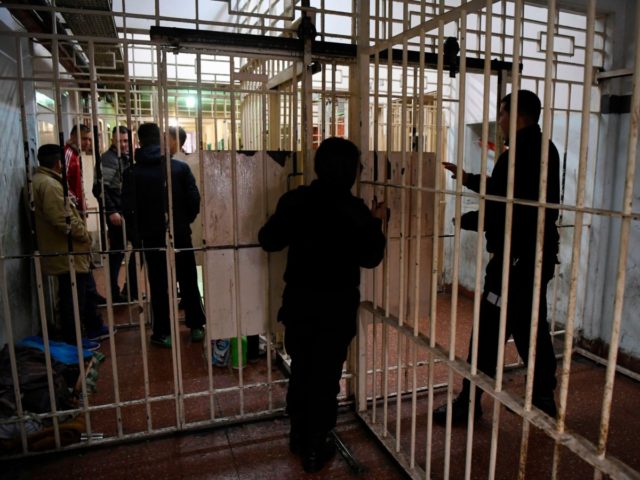In Argentina, violators of a mandatory coronavirus quarantine face jail time and criminal charges. Argentina’s President Alberto Fernandez said this week, “I’m going to be inflexible on this. Anyone who has to be in quarantine is going to follow it, and if they don’t, we’re going to pursue them criminally.”
According to the new mandatory quarantine guidelines, all individuals who have tested positive for the Chinese coronavirus, are suspected of carrying it, or were exposed to it by traveling or meeting with others carrying or suspected of carrying the virus, must undergo a 14-day quarantine.
Violators of the quarantine can be charged with defying measures meant to impede the introduction or propagation of an epidemic, an offense that could mean a prison term of six months to two years.
They could also be charged with defying a public official. Encouraging citizens to help the government enforce the new measures, the National Ministry of Security released a telephone number on Tuesday that people may call to report suspected violations of the quarantine rules.
In Rosario, the largest city in Santa Fe – located 186 miles northwest of Buenos Aires – a special prosecuting unit was recently created to investigate alleged violations of the mandatory quarantine, reported the Argentine newspaper Clarín Wednesday. The Justice of Rosario ordered the creation of the new unit, which will focus on meeting the increasing demand by concerned citizens to investigate possible infractions of the quarantine measures. From Friday to Tuesday, Rosario received between 30 and 40 complaints from concerned residents reporting possible violations.
Prosecutor Gustavo Ponce Asahad was appointed leader of the new unit, assuming the role Tuesday. According to the Public Prosecutor’s Office (MPA), he said he would lead the investigations “for as long as it is necessary in order to face the National Emergency in this matter.” Asahad ordered five people placed on house arrest on Tuesday, and four more Wednesday, for violating the isolation provisions.
Municipal offices maintain lists of people who have recently returned from abroad, and health workers perform daily checks to ensure that these individuals have not left their homes. Tourists who arrived amid the outbreak are now forced to remain in their hotel rooms.
Those who have refused to comply have been deported.
In recent days, Argentina has embraced a number of new measures to stave off the spread of Chinese coronavirus. Argentina’s coronavirus cases remain relatively low – 97 confirmed cases and 3 deaths at press time Thursday – giving the country good reason to want to contain the cases it already has and stop the spread. However, some view the new quarantine measures, and consequences for violating them, as extreme.
Late Thursday Argentine government officials continued to deliberate over a more general lockdown for the country. Proposed measures include a two-week blockade of urban centers, stricter social distancing, and cessation of commercial activities.

COMMENTS
Please let us know if you're having issues with commenting.